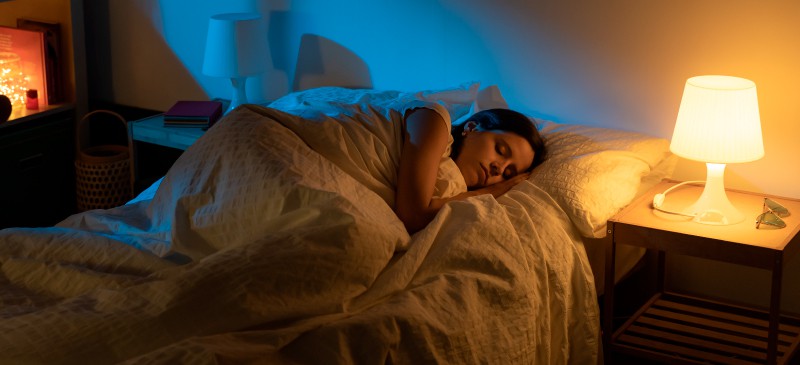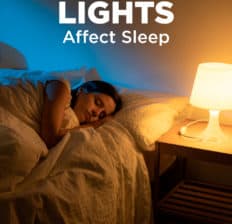This Dr. Axe content is medically reviewed or fact checked to ensure factually accurate information.
With strict editorial sourcing guidelines, we only link to academic research institutions, reputable media sites and, when research is available, medically peer-reviewed studies. Note that the numbers in parentheses (1, 2, etc.) are clickable links to these studies.
The information in our articles is NOT intended to replace a one-on-one relationship with a qualified health care professional and is not intended as medical advice.
This article is based on scientific evidence, written by experts and fact checked by our trained editorial staff. Note that the numbers in parentheses (1, 2, etc.) are clickable links to medically peer-reviewed studies.
Our team includes licensed nutritionists and dietitians, certified health education specialists, as well as certified strength and conditioning specialists, personal trainers and corrective exercise specialists. Our team aims to be not only thorough with its research, but also objective and unbiased.
The information in our articles is NOT intended to replace a one-on-one relationship with a qualified health care professional and is not intended as medical advice.
Study Shows Electric Lights Affect Sleep
May 5, 2022

We’ve long known that light influences human health because it’s capable of modulating our circadian rhythms, aka our “internal clocks.” Your circadian rhythm is response for regulating your sleep cycle, since it helps you feel alert and awake in the morning and drowsy at night. It also plays a role in many other neuroendocrine and cognitive functions.
How does electronic light affect sleep? Can indoor lights cause insomnia? New research suggests that most people are exposed to patterns of light each day that are not optimal for a healthy sleep cycle.
For example, blue light exposure at night due to use of electronic devices can keep you up when you should be sleeping. Even regular lights being on in your home at night might contribute to sleep deprivation. Lack of daytime sunlight exposure is another issue that can contribute to daytime fatigue.
Study Findings: Electric Lights Affect Sleep
A 2022 study published in the journal PLOS Biology found evidence that indoor light exposure affects physiology, sleep and wakefulness in healthy adults. The study was conducted by a team of researchers, including those affiliated with the U.K.’s University of Manchester and the University of Colorado Boulder.
For some background: The human eye is photosensitive and produces melatonin depending on how much light hits neurons in the eye’s retina. It’s been shown that the eyes have specialized cells that are light-sensitive and produce the protein called melanopsin, which plays a role in melatonin production.
Melatonin is a hormone that makes us feel tired and facilitates us falling asleep, so it’s critical that our bodies make enough of it at the right time.
The study found that light exposure influences many aspects of human physiology and behavior. Studies show that by affecting circadian rhythms, light can impact:
- Sleep quality and susceptibility to sleep disorders
- Daytime alertness and productivity
- Moods, including susceptibility to anxiety and depression
- Neuroendocrine functions, such as production of cortisol and insulin, which play a role in appetite and body weight. This may increase one’s risk for heart disease, diabetes, obesity and/or metabolic syndrome
- Cognitive functions, such as memory and learning
- Physical performance
- Risk for accidents
- Cardiometabolic disorders and even some forms of cancer; for example, one study found that sleeping in a room with a television on caused increases in heart rate and blood sugars levels, indicating the body was more alert than it should normally be
Based on these findings and past research, an international standard was developed to quantify the influence of different types of light on the average person’s circadian rhythm and health. These light measurements are called “melanopic equivalent daylight illuminance,” or melaponic EDI.
Using this new standard, experts are able to recommend which types of lighting should be avoided or sought out at certain types of day in order to limit sleep disturbances. By following these light recommendations, it’s expected that people can benefit from more regulated body rhythms, better quality nighttime sleep, and improved daytime alertness and productivity.
What It Means
According to researchers involved in the PLOS Biology study, “our understanding of the underpinning mechanisms and emerging lighting technologies now present opportunities to adjust lighting to promote optimal physical and mental health and performance.”
In other words, we can use our knowledge about light’s influence, as well as new lighting technology, to get better sleep and improve our mental health.
The main takeaway from the study was that industrialization and urbanization have altered the way we’re exposed to light in a way that negatively impacts our health.
The majority of people no longer spend many hours outside each day, instead relying on artificial, indoor lighting. This changes the way our bodies make hormones, which has huge effects.
Here’s an example of how insufficient sleep can take a major toll on people’s well-being: It’s estimated that sleep deprivation costs the United States about $300 billion each year due to absenteeism, accidents and reduced productivity.
Researchers estimate that even modest improvements for those with poor sleep (going from less than six hours of sleep/night to six to seven hours/night) would save the U.S. billions of dollars and prevent thousands of doctors visits.
Tips for Better Sleep
Based on the information above, here’s what experts recommend we do to help regulate our circadian rhythms using light exposure:
- Get more natural light exposure during the daytime. If you can’t go outside and expose your body and eyes to sunlight, at least keep windows and shades open when you’re indoors.
- Be exposed to more darkness during the night, especially just prior to going to sleep. Turn off bright lights at night, and make the environment more dim.
- Spend more time outdoors when possible, even if it’s cloudy.
- Spend less time indoors where electric lighting provides the dominant source of illumination.
- Don’t use electronic devices during the two hours before bedtime. What kind of light from electronic devices affects sleep? It’s called blue light, and it’s emitted from devices including your phone, computer, TV and tablet.
- Don’t keep any lights at all on while sleeping if possible, including the TV, clocks with bright lights, etc. If you need a night light in your room to be able to see, make it a dim one, and keep it close to the floor and away from your face.
- Inside your home, use lights that emit amber or red-orange light, which is less stimulating.
- Limit use of white or blue light indoors.
- Make your room sleep-friendly by using blackout shades and covering up any sky lights. If possible, don’t sleep right next to a window. You can also wear an eye mask when you sleep to block out light.
- Consider using timed lights in your bedroom, such as those that gradually come on in the morning when you want to wake up.
Conclusion
- Can lighting affect sleep? Yes. A new study demonstrates that electronic lights affect sleep. Most often, indoor light exposure at night causes sleep disturbances because it impacts your circadian rhythm, which functions as your “internal clock.”
- Most people in developed countries are now exposed to altered light patterns, including less daytime sunlight and more indoor light at night. This is associated with health problems including sleep disruption, reduced productivity, mood issues, and health problems related to hormone production, heart function and more.
- To improve your health using light, expose yourself to bright, natural light during the day, and keep your home dim at night. Also avoid electronics close to bed time, and sleep in a room without any electric light (such as a TV, clock, etc.).



